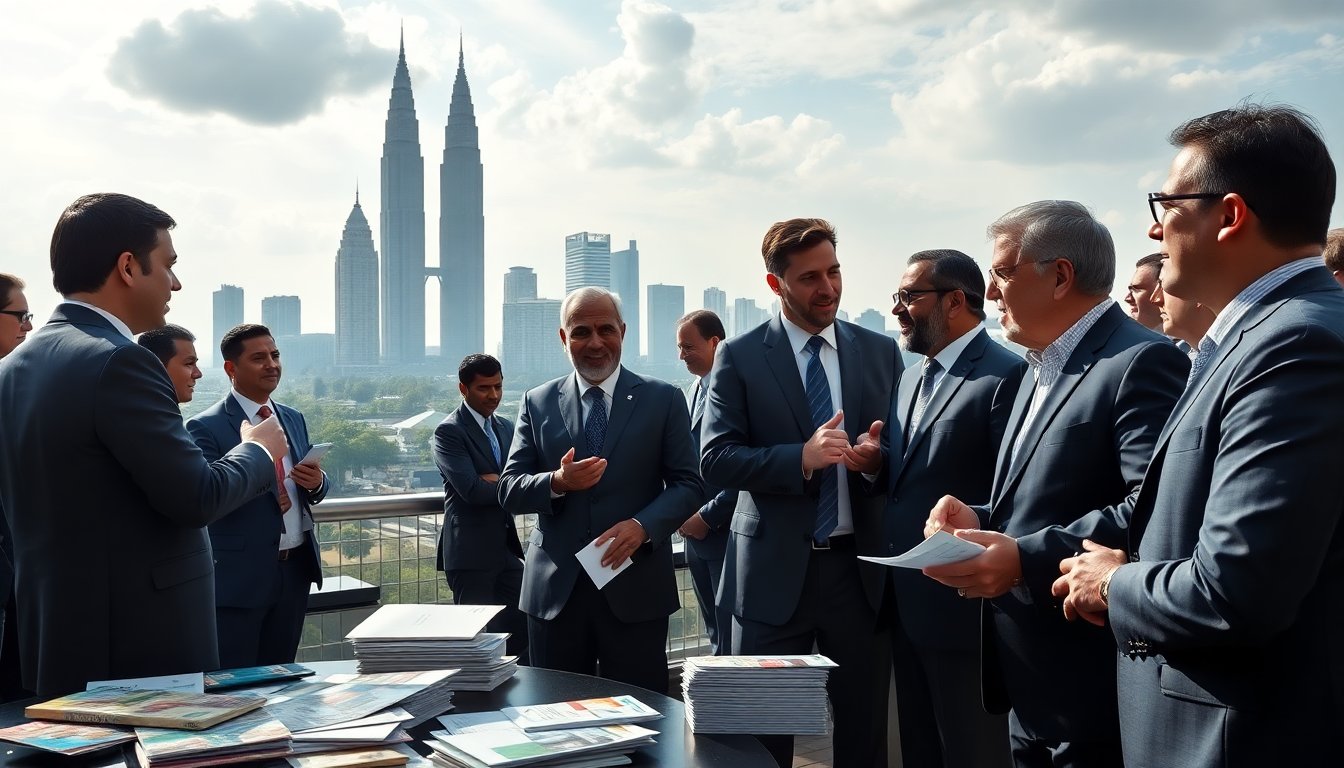Table of Contents
In a world where global trade dynamics are continually shifting, recent actions by the U.S. have prompted the United Kingdom to strengthen ties with India. This strategy raises questions about the ethical implications of prioritizing economic benefits over moral considerations.
Prime Minister Starmer’s mission to India
In a pivotal week, Prime Minister Keir Starmer led the largest trade delegation ever sent by the UK to India, bringing 125 business leaders to Mumbai. This initiative aims to rejuvenate the UK’s struggling economy while helping both nations reduce their reliance on the United States. The trip reflects a significant effort in the post-Brexit landscape to explore new economic opportunities.
The challenges in the diplomatic landscape
The path to strengthening ties with India is complex. Two significant diplomatic issues continue to overshadow the dialogue. First, India’s ongoing oil purchases from Russia during the Ukraine conflict present a major hurdle. Prime Minister Narendra Modi recently extended birthday wishes to Vladimir Putin, a move that starkly contrasts with the UK’s firm support for Ukraine. Such actions complicate Britain’s position as a solid ally of Kyiv and raise questions about its willingness to overlook these discrepancies for economic gain.
In light of these tensions, Labour leader Keir Starmer has taken a pragmatic approach, focusing on economic engagement. A senior official from Downing Street stated, “You don’t get to choose who your world leaders are,” highlighting the need to navigate these complex political dynamics.
Historical context of UK-India trade relations
The path to a free trade agreement with India has been complex for the UK. Former Prime Minister Boris Johnson predicted that a trade deal would be finalized by Diwali in 2022, but that promise was not fulfilled. His successor, Rishi Sunak, known for his Indian heritage, also encountered obstacles in negotiations. Following his resignation, the possibility of a trade deal remained uncertain.
Impact of U.S. tariffs
The situation changed notably with Donald Trump’s return to the presidency. His implementation of significant tariffs on various nations, including allies, has compelled countries to explore alternative markets. In this context, Prime Minister Modi’s recent visit to the UK was seen as a chance to solidify a free trade agreement, which the UK government suggested could generate billions in exports.
This new economic partnership, however, comes with conditions. Starmer faced questions from the media about urging Modi to reconsider oil imports from Russia. His responses were carefully formulated, steering clear of direct confrontation on such sensitive matters.
Ethical considerations and human rights issues
The UK’s relationship with India is further complicated by human rights concerns. A notable case is that of Jagtar Singh Johal, a British Sikh activist imprisoned in India without trial for over eight years. A UN panel has labeled his detention as arbitrary, raising significant alarms among human rights advocates.
The facts
Despite pressure from the family and supporters of Jaswant Johal, statements from Keir Starmer regarding this matter remained subdued, lacking explicit condemnation. When asked if he addressed Johal’s case, Starmer confirmed, “Yes, we did raise proportionate cases,” but did not provide specifics, disappointing many.
Modi’s welcome and future prospects
Starmer’s visit was marked by an extravagant reception, with streets decorated with banners depicting both leaders. This warm welcome sharply contrasts with the political climate in the UK, where similar displays might lead to protests or vandalism.
The UK is looking to diversify its trade relationships, especially within the entertainment sector. Proposed initiatives include collaborations between British universities and Bollywood, as well as defense agreements. The UK film industry, facing potential tariffs on foreign productions, is eager to explore new partnerships.
The implications of starmer’s visit to mumbai
Keir Starmer’s stay in Mumbai, at a hotel emblematic of colonial history, highlights the evolving dynamics of UK-India relations. This visit raises questions about whether economic interests will take precedence over ethical considerations as the two nations seek to strengthen trade ties.
The relationship between trade and ethics remains precarious. As the UK and India navigate this partnership, the consequences of their interactions will be scrutinized closely. The geopolitical stakes are significant, and the outcomes will shape the future of their collaboration.


